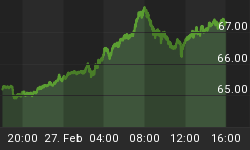The Governor of the Bank of Canada, Mark Carney, has become Governor of the Bank of England. No change in actual title, but hired at considerably higher compensation than that of the previous Governor. Mr. Carney brings to the position a pleasant visage and speaking voice. Obviously his new employers are expecting much more than that.
Although a stretch, it reminds of when England's government appointed Isaac Newton to head up the Mint. Some have written that there was hope that the great scientist would be able to provide more than sound management. Perhaps, as an alchemist, he could conjure up something for nothing. This, of course, was well before ambitious politicians and bureaucrats discovered Keynes.
During the financial storm Carney earned accolades in Canada and glowing comments from an international financial media. Like so many others in central banking circles he has a PhD in currency depreciation and interest rate manipulation. Because Canada's troubles were less severe than many countries there was much favourable comment about the country's banking system and central bank.
The best thing that can be said about Canada's banking system is that it has not been designed by the US Congress. The long tradition of sound banking started in the early 1800s when partners forming a bank were liable for twice their personal equity in the bank. The best banks became relatively big and diverse in operating in all regions of the geographically huge country. So far the folly of deposit insurance imposed by the government in 1967 has caused little harm to the banking system.
If one had to identify key reasons how Canada weathered the storm it would be that her politicians were not as forceful in insisting that mortgages be made available to those who could not meet the obligations. Another reason also involved residential real estate. The bid from Asian buyers continued in Canada. Perhaps in the US it was overwhelmed. After the 1980 blow-off in commodities and inflation, upscale residential in Toronto and Vancouver fell to one/third of their highs. Financial markets are again faltering and Canadian real estate is vulnerable.
As the head of the Bank of Canada Mark Carney maintained considerable poise and as the saying goes "was looking good".
For sure some of Carney's compensation is to cover the much higher costs of London relative to those in Ottawa. But a couple of years ago when the Fed's "Dream Team" had faltered, Carney seemed to have the central banker's equivalent of a magic wand. Admirers of the techniques of central banking place considerable stock in timing the market. In 2007 it was widely boasted that the Fed, and to a lesser degree, the Bank of Canada could make the perfectly-timed cut in some administered rate and the financial party would continue. Now any old financial historian would know that this claim was impossible. But somehow Carney kept "looking good" and is appointed as head of the Bank of England. In her early days, the "Old Lady of Threadneedle Street" promised to "infallibly" lower interest rates, but provided unsound banking, herself. After a couple of insolvencies she discovered sound banking.
Since the intellectuals gained influence in the 1930s unsound banking has prevailed. As the "new broom", Governor Carney is in rare position. Should he continue with the ancient practice of trying to make a post-bubble credit contraction go away by throwing more credit at it? Or should he work towards sound banking built upon a sound currency?
We wish him well.















